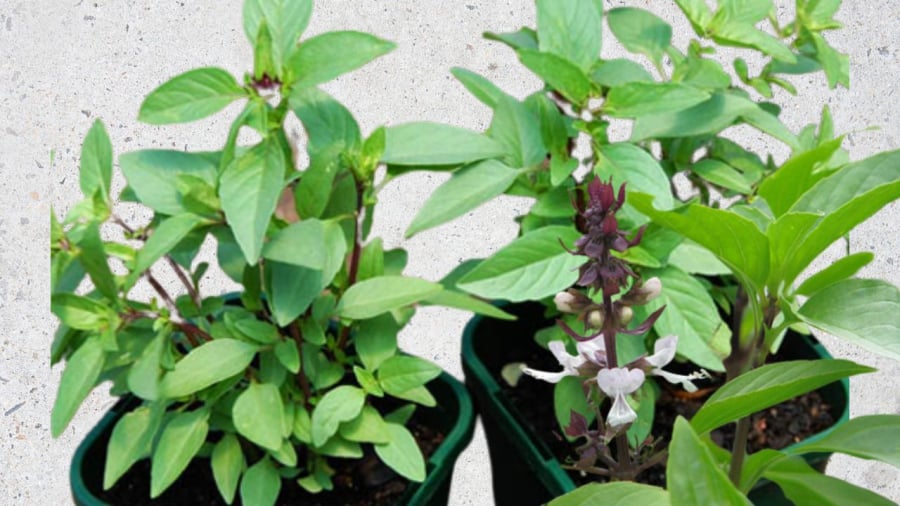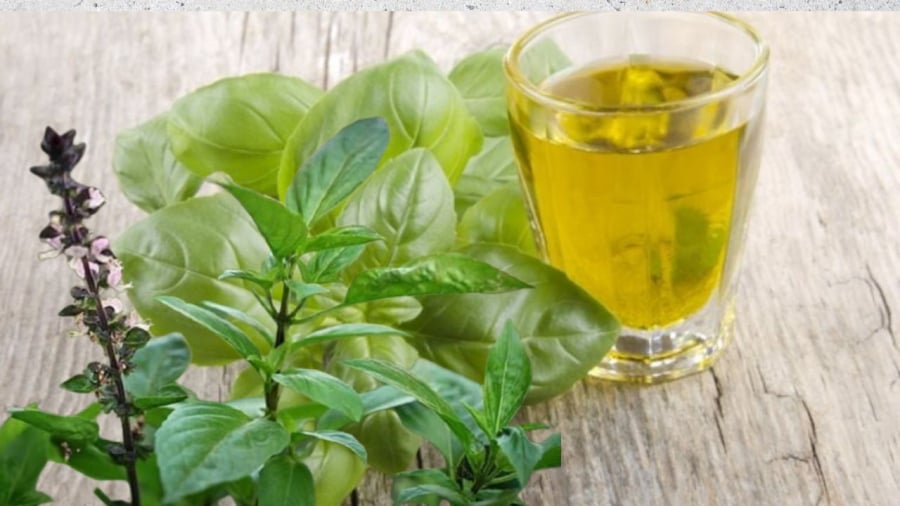Basil: A Herb with Positive Feng Shui Meanings
Basil, a versatile herb with a fragrant touch
Basil, also known as Thai basil, is a popular herb with a distinct aroma. Its leaves are commonly used as a culinary herb, adding a unique flavor to various dishes. However, basil is more than just a culinary herb; it is also a medicinal plant and a Feng Shui ornamental plant.
Basil is easy to grow and is often grown in pots placed near windows or on balconies. Its straight, upward-growing leaves are believed to attract wealth and luck, making it a favorite among homeowners. The plant is rich in essential oils, giving off a pleasant aroma that purifies the air and creates a calming atmosphere while warding off negative energy.

Basil: A Familiar Herb with Feng Shui Significance
In Indian culture, basil is considered a sacred plant, and in Feng Shui, it is believed to ward off negative energy from the home.
According to Feng Shui principles, the best directions to place basil plants are North, East, or Northeast to attract wealth and prosperity. Basil can be grown indoors near windows or in the kitchen, where it can dispel negative energy and invite positive energy, thus enhancing the flow of abundance.
How to Grow Basil
Basil is easy to propagate. You can simply cut a stem from an existing plant and root it in soil. It requires minimal care and can thrive in pots with well-drained, nutrient-rich soil. You can either buy seeds or propagate from cuttings. During the initial growth phase, maintain moisture and protect the plant from pests like mice and insects. Water the plant with rice water, avoiding the leaves. Avoid placing the plant in direct sunlight to prevent leaf burn. Older basil plants will flower and produce seeds, which can be collected and replanted.

The Many Health Benefits of Basil
Basil’s Numerous Health Benefits
Basil also has a wide range of applications in daily life:
Repels Insects: Basil’s essential oils have a relaxing effect on humans but are repellent to flies and mosquitoes. Place a pot of basil near your windows and in the kitchen to keep these pests at bay. You can also crush the leaves and rub them on your skin as a natural insect repellent.
Relieves Stress: The aroma of basil has a calming effect on the mind as it helps maintain normal levels of cortisol, the stress-inducing hormone. When stressed, simply crush a few leaves and inhale the fragrance or chew on them to promote relaxation.
Headache Relief: The essential oils in basil have analgesic properties that can soothe pain associated with sinusitis, allergies, colds, and migraines. Chewing on basil leaves or applying the oil topically can provide pain relief and unblock sinuses.
Promotes Clear Skin: Basil’s detoxifying and blood-purifying properties can improve skin health. Use basil water as a facial cleanser or apply it to treat acne.
Soothes Cough and Sore Throat: Basil’s antibacterial properties make it an excellent remedy for gum inflammation, coughs, and sore throats. The compounds camphene, eugenol, and cineole in its essential oils help reduce inflammation.
Dental Health: Chewing on basil stems and using the water to gargle can reduce gum inflammation and promote whiter teeth.
Aids Digestion and Relieves Constipation: Basil can provide relief from bloating and constipation. Chewing on a few leaves can help ease these digestive issues.
Basil is a versatile herb that can be used fresh or dried and is easily portable, making it a great companion when traveling. Its aroma can instantly lift your mood and relieve fatigue.
Reference information





































